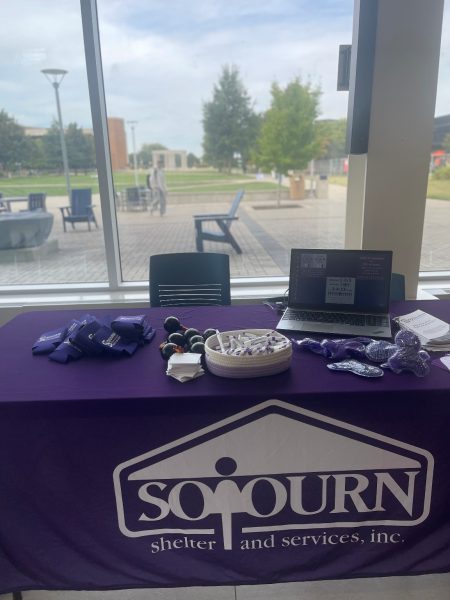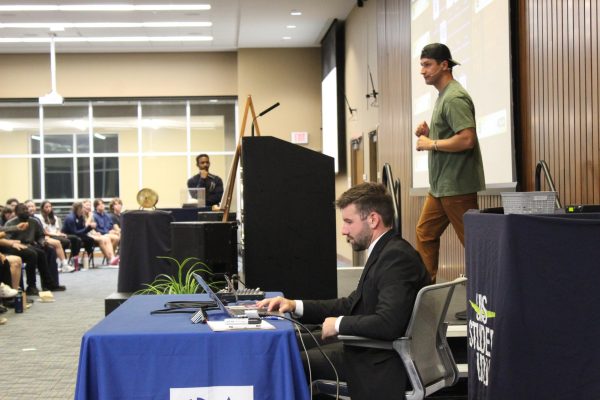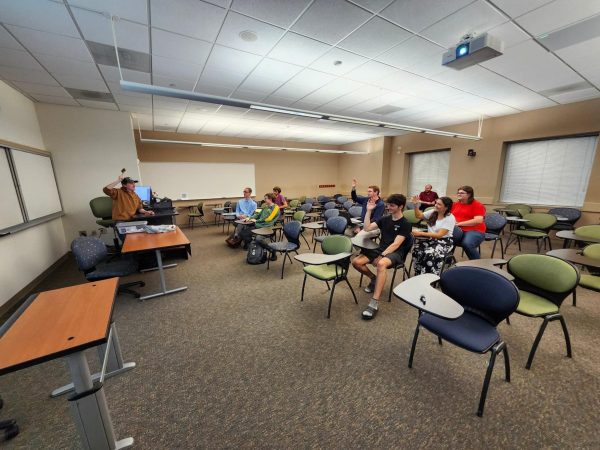Cat Issue Was Handled Poorly
An email sent to students on Sept. 21 revealed UIS’s controversial policy on feral cats. Most of it was old news—the State Journal Register had reported many of these policies on Aug. 17.
It does not matter where, when or how you became aware of UIS’s feral cat policy, what is relevant is that you have likely heard about the policy by now. In case you haven’t, to summarize, nobody is allowed to feed wild cats on campus, and the university’s official stance is to take them to animal control. Anybody in violation “will be referred to law enforcement,” according to Associate Chancellor for Administrative Affairs, Facilities and Services, Chuck Coderko.
This has caused a backlash from students, employees and local animal lovers. The way UIS has handled its public relations in light of this ongoing issue has been, to put it mildly, poor.
One of the first red flags I spotted was when messages, written in sidewalk chalk, expressing dissent at the university’s feral cat policy were erased. Who erased these messages? Were they paid employees? If so, this brings up a few problems.
First, use of sidewalk chalk is explicitly permitted by UIS, so if an employee was ordered to remove those messages, then their superior was, in a way, engaging in censorship and non-neutrality.
Second, it is not a good use of resources. Employees have more important stuff to do. Another thing that concerned me was the email received from Student Government Association (SGA).
According to the letter, “SGA is in the process of arranging an open forum for a number of issues on campus, feral cats being one of them.” Putting aside the fact that SGA does not have control over this policy, the appropriate time to have a forum would have been before, not after, the decision was made. SGA admits in the very same letter that it “has been in ongoing meetings with Administration in regards to the feral cat issue on campus as well as other concerns.” Unfortunately, the students who SGA is supposed to represent were unaware of such meetings.
Regardless of what people think about feral cats, I think most people would agree that transparency and dialogue are crucial in decision making. To have genuine transparency and dialogue, instead of mere illusion, a few conditions must be met.
1. Dissenting views must not be censored.
2. Information must be available to all parties.
3. Timing must be appropriate.
Unfortunately, none of these conditions were met. The letter sent on behalf of SGA looks like typical damage control from a public relations department. SGA can claim they listened to students and that they made an effort—despite not doing it until after the fact.
Administrators can sleep well knowing SGA can’t do anything except pass a resolution with zero force and which will almost certainly be ignored by those in actual decision making roles.
Administrators and SGA should do better in the future.










